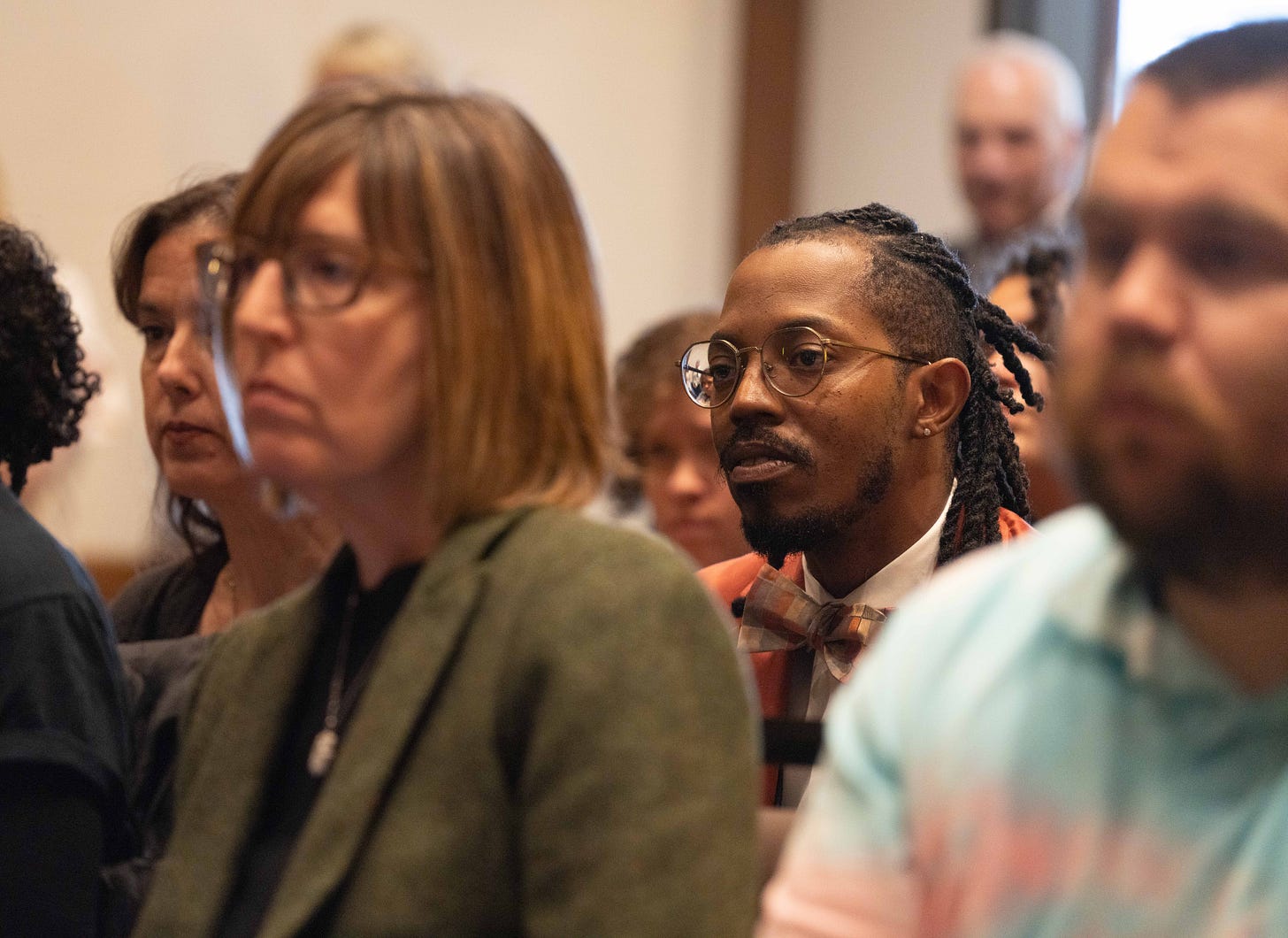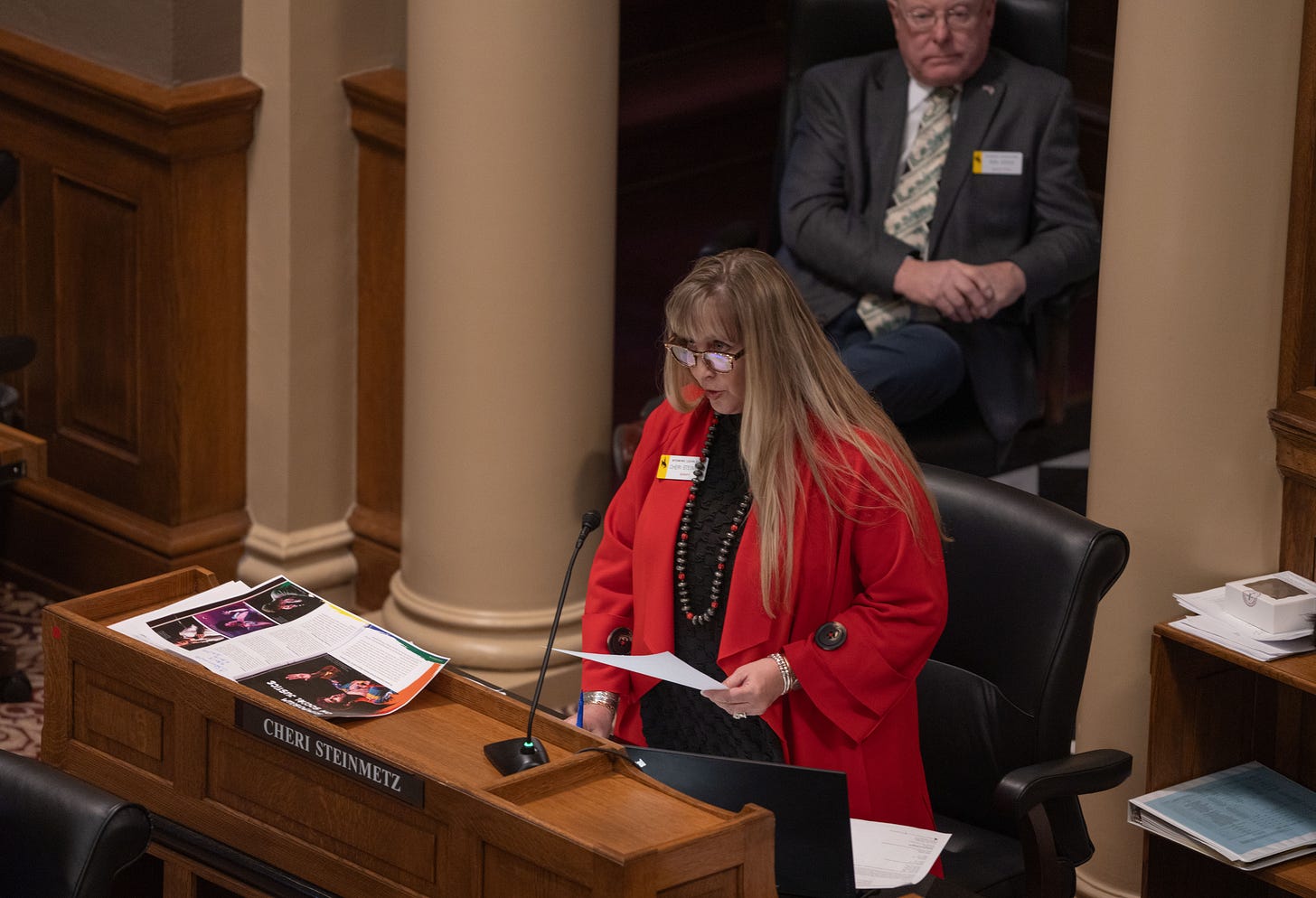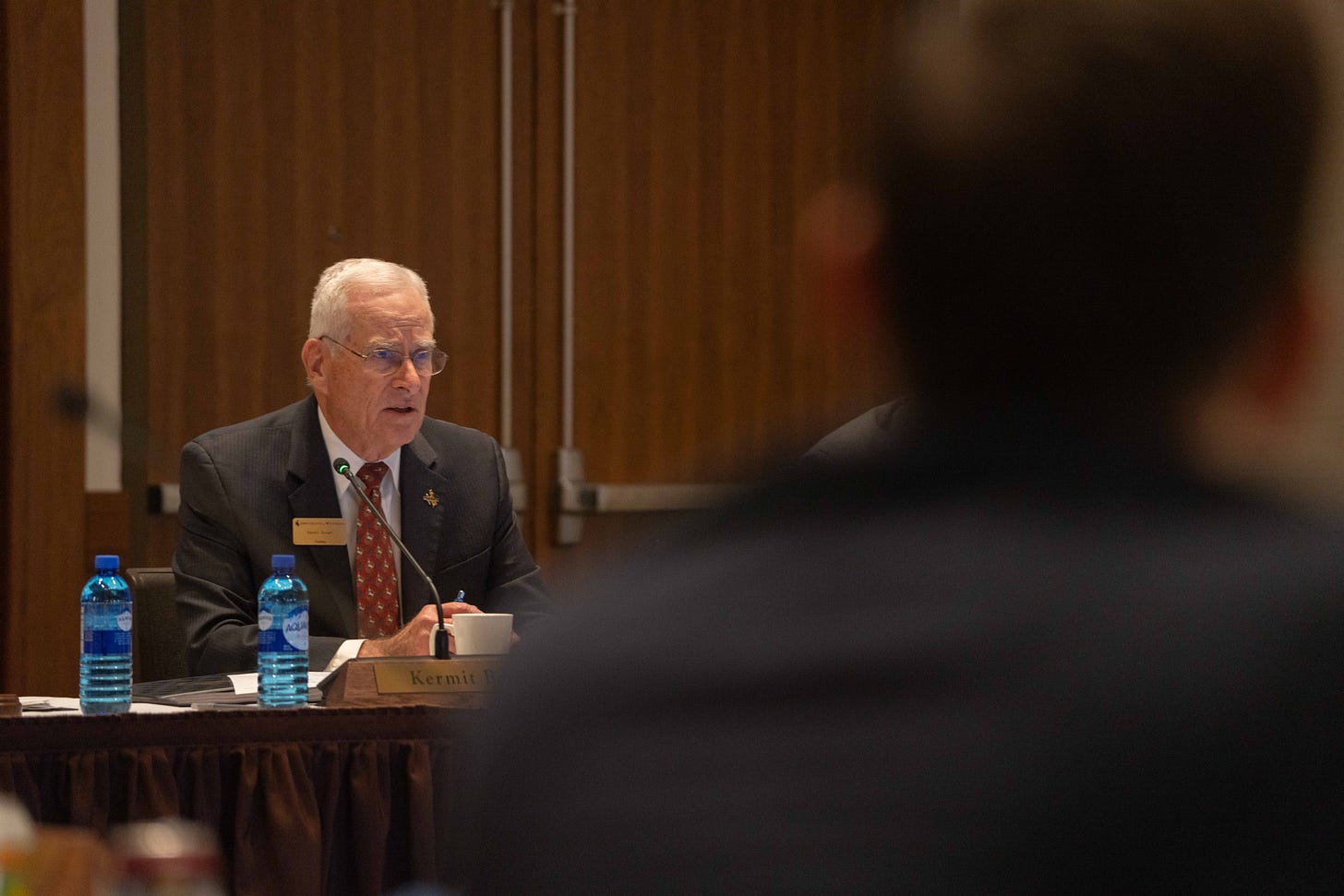UW trustees vote to disband DEI office, reassign personnel, redistribute most functions
All personnel, all functions related to accreditation and many functions related to student success will be reassigned. Some minor functions will be axed, with more evaluation promised.

The University of Wyoming Board of Trustees voted this afternoon to eliminate the institution’s Office of Diversity, Equity and Inclusion, promising to reassign its current employees to other units and committing to continue many of its major functions.
The vote follows months of uncertainty following the Wyoming Legislature’s decision to defund DEI and draws on a new report outlining the university’s various DEI activities.
UW President Ed Seidel recommended today that the board eliminate the office but endeavor to keep much of its mission alive.
“Duties will be reassigned and will include the creation of a Vice Provost for Faculty, Staff and Student Access, Opportunity and Well-being,” Seidel said. “All personnel in the existing Office of Diversity, Equity and Inclusion will be reassigned.”
Stemming from the same vote and effective immediately, UW will no longer gather statements of diversity from job candidates and will no longer evaluate employees on components of diversity, equity and inclusion.
While many DEI-related programs or events hosted at the university still face an uncertain fate, other activities are safe — including some activities that have been, until now, housed in the Office of DEI.
“I want to be clear that many of the principles and activities that have been important at UW for decades — because they are legally required or because they are essential for community success — will continue,” Seidel said. “These include but are not limited to: academic freedom, research freedom, compliance with federal laws — including the Americans with Disabilities Act, Title VI, VII and IX — Native American Affairs, the Shepherd Symposium, the Latina Youth Conference and others.”
Seidel said the university will continue its ongoing task of evaluating all of its DEI-adjacent functions to “ensure that they promote merit and do not promote preferential treatment.”
Functions to be evaluated include admissions processes, invited speakers, identity-based centers, and events like the recently canceled Black 14 Summer Institute.
But some university programs are exempted, either because they are required by state or federal stipulations or because they are uncontroversial.
“Among the UW activities and programs that won’t be changed are those addressing requirements necessary for athletic and academic accreditation compliance; training students and employees on the nondiscrimination requirements of state and federal law; requirements for access programs for military veterans, Pell Grant recipients, first-generation college students, nontraditional students, low-income students or people with disabilities; and student fees to support student-led organizations and their use of faculty sponsors and university facilities,” notes a UW news release published today shortly after the board’s decision.
What’s lost is UW’s ability to house its various programs related to diversity, equity and inclusion in one easy-to-locate place — as Zebadiah Hall, the vice president for diversity, equity and inclusion, lamented in his own comments to the board.
“I hope that we become stronger than we are because of this process,” Hall said. “And I hope for the folks that are confused about what DEI means, they come sit with me and spend time with me, because I care about all the people in this state. And I think that everybody in the state should have access to this university.”
Hall said his office ensured that access.
“When people have these conversations around freedom of expression, you actually can’t have freedom of expression without diversity, equity and inclusion,” he said. “If I can’t express myself authentically, I don’t belong in that space. If I don’t have access to that table, then I can’t express myself freely.”
How did we get here?
The vote comes in response to action from the state during the latest legislative session. The Wyoming Senate added a footnote to UW’s portion of the state budget forbidding the university from spending any state funds on the Office of DEI or on any DEI activities or programs more generally. The Senate also slashed $1.7 million — the office’s biennial budget — from UW’s block grant.
Both the cut and the footnote survived the session and were included in the final budget bill that was sent to Gov. Mark Gordon. The $1.7 million cut was locked in at that point as the governor has no ability to rewrite dollar amounts.

Gordon vetoed part of the footnote but not all of it, writing he did not want to jeopardize federal accreditation or research funding while directing UW to root out any “woke” “nonsense.” The result was that UW could no longer spend state funds on its Office of DEI, but it was not forbidden from spending state funds on DEI activities more broadly. It was also not forbidden from spending private funds on its Office of DEI.
President Seidel convened a working group to consider DEI at UW — to define it, identify programs and outline a spread of recommendations for the board to discuss. That group produced a 43-page report doing just that, and this report informed Seidel’s comments Thursday and Friday.
“I wish we didn’t have to go through this exercise the way that we’ve had to do it,” he said Thursday. “It’s been just very emotional and divisive and upsetting … lots of things were not good about it. But there is one thing that’s not a bad thing: to think about, ‘What are your values?’ and re-articulate them, and then look yourself in the mirror and say, ‘Are we conforming to those values everywhere?’”
The view from campus
Following an “extraordinary” Board of Trustees meeting in March — attended by dozens of faculty, staff and students who turned out to voice their support for DEI — Seidel returned for the May meeting ready to address the state budget cut and aiming to keep ahead of any further legislative directives.
“We do need to listen to, not just the letter of the law, but the intent of the legislature,” Seidel said. “There’s a signal there, and the state does provide the bulk of the funding for the university. So I’m just saying that I’m very serious about hearing what I hear from the legislature and our elected officials and others.”
Yesterday, UW heard nearly an hour of public comment regarding the DEI issue. Most, but not all, commenters spoke in favor of DEI and in favor of preserving the office or of rebranding it to avoid the ire of those who misunderstand what DEI actually means.
UW researcher Michelle Mason holds a Ph.D. in physics and is currently pursuing a second Ph.D. in science education — the dissertation for which devotes a chapter to struggles between the legislature and university regarding diversity programming.
“It’s incredibly frustrating for someone who works in DEI, and studies DEI and the importance of it in education, to hear people misconstrue — deliberately or otherwise — what DEI is, what we do, everything we stand for,” Mason said. “We do not push an agenda. People come to our office asking for services. A lot of people who I wouldn’t expect to see actually come to us.”
Mason said DEI programs are “invaluable” at UW and confusion surrounding what does and does not count as DEI demonstrates how little its critics understand the office they seek to eliminate.
“Just because the legislature has a warped view of what DEI is does not make it true,” Mason said. “People have testified today that what we do in DEI can still exist without the label of ‘DEI’ — which just goes to show that people don’t actually object to what we do, but just the letters D-E-I. Four years ago, it was critical race theory that was the boogeyman. Now DEI is the boogeyman.”
Others testified to how they had been personally helped by DEI programs — how it kept them in school, made them feel welcomed or helped to shift their perspective and start viewing the ways they were different as an “asset” rather than a problem.
Defining DEI
Lawmakers did not define “diversity, equity and inclusion” even as they attempted to defund any “program, activity or function” bearing such a label. The lack of a definition presented an obstacle for those at UW tasked with addressing the new budget footnote.
The working group convened by President Seidel took it upon themselves to first define DEI so that they could identify it throughout the university. Specifically, they attempted to nail down the definition lawmakers were referring to when they wrote those words in a budget footnote. The goal was to identify the actual problems lawmakers have with DEI and seek to address or extract those problems from programs or activities at UW.
The working group ultimately deduced that lawmakers were concerned about any program that promises or pursues “preferential treatment” on the basis of race, color, sex, national origin, gender identity, or sexual orientation — with the exception of some programs such as those touching on academic freedom or programs or activities where such “preferential treatment” is legally required.

The problem inherent in rooting out programs that engage in the preferential treatment described above is that there are not many programs that do this, according to the working group’s final report.
“The people in the state are angry about preferential treatment,” Chairman Kermit Brown said Thursday. “And the challenge that I think this board faces is when it drills down deeply into this, it finds that there may be some areas that need inquiry, but the vast majority of areas are not preferential treatment. That is not what our Office of DEI at this university does.”
Case study: Women, diversity and merit
President Seidel provided an example from his own career in academic administration, though he didn’t specify whether the story took place at UW. It illustrates, he said, how the pursuit of diversity does not conflict with meritocratic hiring practices.
“Personally, in my past, I’ve had search committees come back with no women candidates,” Seidel said. “And I said, ‘Why aren’t there any women candidates?’ And the answer was, ‘We didn’t get any,’ or ‘They weren’t meritorious.’ And so I said to them, ‘Go back and work harder to find good candidates.’”
Seidel took the absence of any women candidates as an indication that the search committee had not “done its homework.” If women are equally capable of doing the work, they would be equally represented in a competently gathered pool of candidates. Seidel said recruiting more diligently, through personal and professional connections, resulted in a more diverse pool.
“The principle there is to work very, very hard to recruit the most diverse pool you can get,” Seidel said. “It increases the quality and the breadth of the applicant pool. But then you apply merit-based principles in making the hires.”
Trustee Dave True took issue with this, arguing that Seidel’s story sounded exactly like the “preferential treatment” UW should avoid.
“The reason you forced them to go back was because there was no woman,” he said. “To me, that was discrimination, because that candidate pool that they brought to you was rejected because it didn’t have a woman.”
Chairman Brown said he could see both perspectives.
“It is truly a dilemma,” Brown said. “Somewhere in there’s the glass ceiling and I’ll give President Seidel the benefit of the doubt that what he’s trying to defeat is the glass ceiling … If you get an applicant pool that has no women — when it’s common knowledge that there are women that are merit-qualified — then something’s going on.”
Executive decision
Diversity, equity and inclusion activities at UW, whether located in the DEI Office or outside of it, generally fell into two camps — those which are federally required, such as maintaining a Title IX office, and those which are related to student success, such as student support services.
One way or another, UW was never going to vote itself out of Title IX compliance or vote to eliminate any federally required activity, and university leaders made clear as early as the March board meeting that they were interested in keeping and supporting those programs geared toward student success.
“To those who might be disappointed in the results, I’m sorry,” Trustee Macey Moore said Friday. “But what we’re doing in Wyoming in this area is largely necessary and frankly it has some of the most beautiful outcomes.”
UW will have to pursue private funding for some of these programs, such as the Latina Youth Conference, which fall afoul of the legislature’s presumed intent.
This morning, the trustees began their meeting with an executive session lasting more than three hours. When they reconvened in open session, Seidel made his recommendation. Several trustees noted they appreciated the comments they had received and others noted that UW was still committed to making all feel welcome. But there was little debate today before the board voted to eliminate the office.




Simple question: what does the DEI office cost (salary including bennies, perks and everything else), and what have they accomplished. Was it worth it? Looking at DEI office website, the DEI office "produced" a strategic diversity plan and lists steps on how to self-identify; see: https://www.uwyo.edu/diversity/index.html. Not really a moonshot, is it ...
DEI... SOME people are angry but no where near all are embracing the cancer of ignorance and short term thinking!
We in Wyoming have always been alittle backward, but now have a sub class of willful ignorance and intolerance in the legislature unmatched since the 50's.
Both state and fed politicians are closing the tiny minds and sticking their heads in the sand.
SAD FOR BOTH THE STATE AND ITS CITIZENS OF ALL PERSUASION!!!!